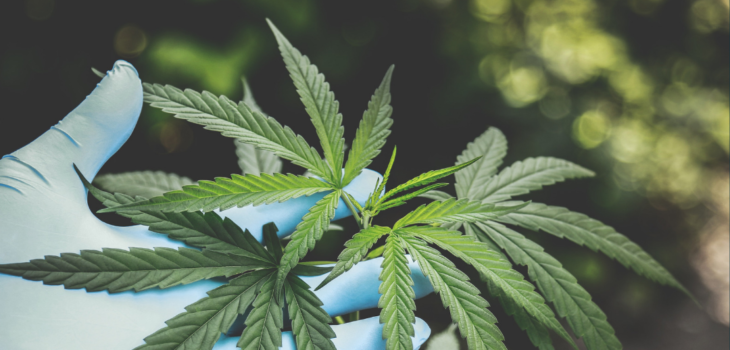 Education
Education
The Benefits of Being Craft
The cannabis industry is full of passionate people. From those cultivating to the patients at the receiving end – everyone is animated about their experiences, career, and relationship to this little green plant. But it’s the growers who often have a particularly strong connection to the plant. They are the ones who’ve spent decades digging deep to perfect their techniques and methodology. It’s these passionate small-scale cultivators who have found themselves as the voice of the craft cannabis industry.
The quality difference between a craft bud and a big-name one is clear. The proof is in the pudding, or in the flower, as they say. Even in such a newly minted sector, craft cannabis in Canada stands out from the rest. Craft means something different than the run of the mill product usually available on dispensary shelves. Craft is the good stuff – it’s the unique strains and innovative products everyone is starting to talking about.
While large multinational companies may be stealing the limelight in Canada’s first year of legalization, their product isn’t the one earning a following at the dispensaries. For the first time in history, consumers can compare two different cannabis products to choose the best one.
The benefits of growing small are more than just what the bud looks like in the palm of your hand though. Growing small is like a passion project. One that starts in the strain development and ends with a well crafted final product.
What Does it Mean to Be Craft in the Cannabis Industry?
But what does craft mean? Craft cannabis is only the newest rendition of the small-batch, micro-producer trend seen across many other industries. Just like we witnessed in the beer industry, big-beer isn’t king anymore. It’s the craft breweries which have propelled the industry forward and earned a following of loyal patrons.
It’s a pattern repeating itself across many consumer sectors beyond beer, from farmers markets to local butcher shops. Canadians are keen to ditch the big box store in favor of buying small and local. It’s why they are already moving towards craft cultivated cannabis.
In Canada, craft cannabis describes a culture but also a special licensing called The Micro Cultivation Licence. This license makes it easier for smaller growers to enter into (or stay in) business. It’s a competitive edge for the little guys, to stand their ground against farms producing tens of thousands of pounds a year.
A Micro Cultivation Licence allows for up to 200 square meters of canopy space, although this may include multiple growing surfaces. Each license qualifies one unique address, but in some industrial zones, this may cover addresses within the same building. For craft cultivators, this type of permit has fewer regulatory hurdles to overcome, lower staffing and security requirements, and therefore more financially feasible. The Micro Cultivation License may also tie into the Micro-Processor License for a complete seed-to-sale supply chain.
Yet, craft cannabis culture is much more than just the paperwork involved. For the people working with the plants, craft means more than numbers and licenses. If you are a craft cultivator, you are passionate about the process from start to finish, and funnel that passion into a small commercial operation. You touch every plant and know the nuances of the growing facility inside and out.
The best way to envision the craft grower is to compare it to an industrial grower. There are facilities in Canada that produce on an unfathomable scale, with facilities over 200,000 square meters in size. The large-scope format works for pumping out pounds of product, but it does nothing for the quality of that product. Big producers often grow in a monoculture format to optimize their indoor growing conditions for one single strain. They grow for volume and have little space for experimentation.
Craft cannabis is quite different: small spaces, lots of experimentation, and a visibly different product at the end of the day. It’s not always about volume, its sometimes about cannabinoid content or flavor profile. If you are working on a small scale, you are on the floor with the plants every single day, seeing the nuances develop as they reach harvest. This attention to detail gives the craft grower an ability to evolve at a faster pace than their industrial competitors.
What are the Benefits of Craft?
Let’s break it down into bite-sized pieces. What makes craft cultivation so great? Why are so many people excited about the potential of growing small scale? Craft cannabis growers keep it low-key not because they lack what it takes to go big. They are growing small on purpose. Here are only a few of the reasons why craft is here to stay.
- Grass Roots Growing
Long before recreational cannabis was around, many small scale growers earned their reputation by learning to innovate. They worked with what they had and brought the industry to where it is today. They were locally owned and operated, they knew their customer base, and they were connected to their community. No pun intended, but craft cultivation remains dedicated to grassroots growing mentality even to this day.
Grassroots means strong connections to the local community. That might look like jobs, participation in the local business chamber, or sustainable business practices. Grassroots is generally less cutthroat then how the big-players operate, and they welcome cooperation. Craft cultivation is making connections not to burn bridges.
- Sustainable Growth Practices
When you are small, you are naturally more eco-friendly. Your harvests use less water, less energy, and fewer fertilizers. Growing small means you can pay closer attention to changes in your crop, and make the adjustments needed.
On the industrial scale, the details tend to get lost in the foliage. Big operations cannot make on the fly environmental adjustments. If a few plants are struggling among thousands, there isn’t time or concern for their development. A craft grower may have the capacity to get the most out of the struggle plants, to adjust their environment and improve the growing conditions.
Sustainable growth may also mean reducing the environmental impact in several other ways. For some craft growers, it may mean adopting wholly organic farming practices; for others, it might mean growing outdoors on a small plot of land. Being small is naturally more sustainable than most industrial methods of agriculture.
- Strain Development
It’s so much easier to experiment when you are operating on a small scale. Growers have the space to tweak the environment in attempts to improve old strains or launch breeding programs to develop exotic new strains. You are not as tied to your principal strain as say, an operation growing at 200,000 square meters at a time.
Again, the big growers will plant what sells the most. Their business model depends on moving the most product possible. This doesn’t give them the leeway to try out strains flavor profiles or cannabinoid contents. When you are small, you’ve got the freedom to branch out now and then. It makes it much easier to respond to niche market needs and consumer preferences.
- A Perfect Product
Any way you look at it, you can see why passionate small scale operations produce a better product then the industrial monoliths growing at scale. Craft beer tastes better than a brew from Anheuser-Busch, artisan chocolate is better for you than a Mars bar, and you’ll experience the same differences within cannabis.
Growing small means someone is paying attention to the details. At each step of the process, someone is optimizing the conditions to produce a cannabinoid-rich and fully developed flower. It’s easy to see if one area of the grow isn’t thriving and make the necessary adjustments. Craft cultivators harvest each plant for peak trichome development, instead of on a schedule the factory farm dictates. There is much more space given to each employee to follow the best farming practices, all to produce the best final flower.
- Craft Sells!
Consumers are already well versed in high-quality craft products. The beer industry has trained us to expect better from a craft producer than from an industrial factory setting. The cannabis consumer is primed to see the value of a craft product; the product needs to introduction.
Because the consumer can smell, taste, and feel the difference between a sub-par bud and a beautiful one, it’s easy for them to make an informed decision on quality. We, as consumers, are already investing in these premium products sold by craft brands, because we can see the difference. We care about quality and are ready to spend money on it.
Craft cannabis brands like Canalief are often packed full of the most dedicated people in the industry. They aren’t just growing cannabis because its a job, they are growing it because they care. As the cannabis industry in Canada continues to evolve, it’s going to be the craft growers who continue to push the envelope, launch unique strains, and improve upon their already great product. Multinational industrial-sized growers may produce the most product, but consumers can already see who is delivering the best.
Want more insightful articles about cannabis in Canada sent right to your inbox? Sign up for our newsletter!



